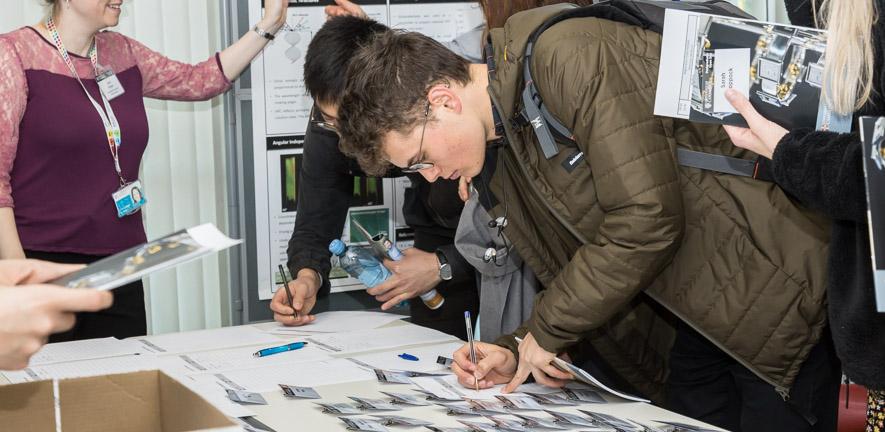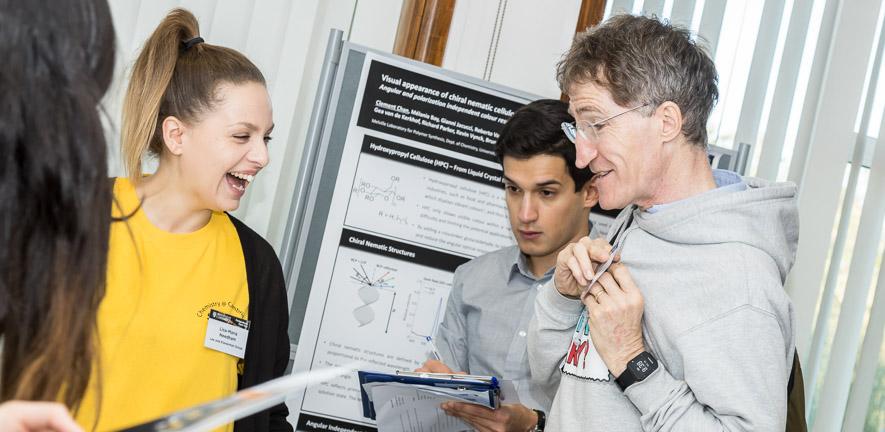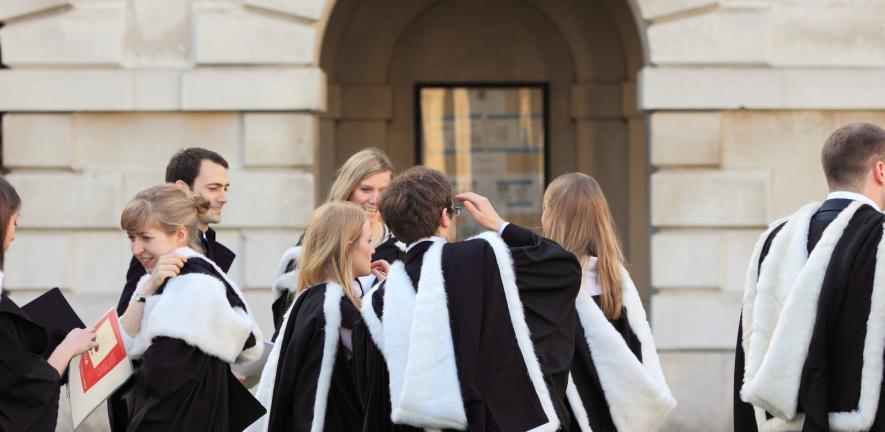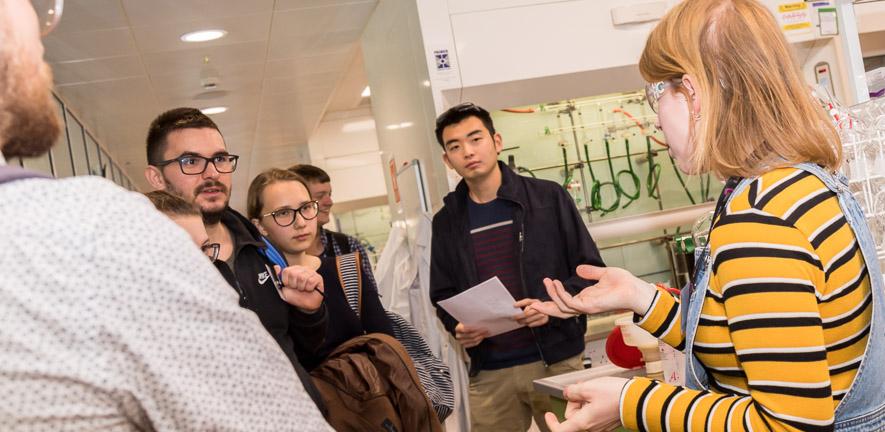About the Department of Chemistry
The University of Cambridge Department of Chemistry is a world-class teaching and research centre recognised for its exceptional record in discovery, innovation and excellence. We consistently rank as the top chemistry department in the UK, and within the top five departments worldwide. We admit around 80 postgraduate students each year. Most of these are PhD students, plus around 20 MPhil students. All postgraduate students are enrolled on to our comprehensive Postgraduate Education programme.
To learn more about what we do here in the Department, and what you can gain by joining us for your postgraduate studies, please see the video on the right. To find out more about being a postgraduate student at the University please click here to learn more about Student Life.
Here in the Department we progress fundamental science in three strategic areas:
- Chemistry of Health Advancing the understanding of health and disease in areas of global importance (ageing, cancer and infection).
- Innovative Molecular & Materials Design Transforming the development and assembly of important functional chemicals to produce new high-value products for novel applications in health care, agriculture, energy, and consumer products.
- Sustainable Energy, Environment & Climate Investigating the impact of chemical processes on the environment and working to develop sustainable energy systems.
At a departmental level academic interests in chemistry are defined according to five research areas, which constitute the department's Research Interest Groups (RIGs): Biological, Materials Chemistry, Theory, Physical & Atmospheric Chemistry, and Synthetic Chemistry.
Our research culture is extensive, inclusive and dynamic. The department sits in the centre of Cambridge, one of the world’s greatest intellectual communities. This enables all who study here to find opportunities to engage and benefit from this extraordinary hub of creative, scientific activity – encompassing the department, its collaborators, industry partners and through the unique experience of College life.
Important dates
We particularly encourage BAME applicants, LGBTQIA+ applicants, applicants with disabilities and other underrepresented groups in the chemical sciences. If you are interested in applying, please click here for more information on how to apply.
We accept applications all year round but can only enter candidates for University Scholarships if they apply by the appropriate deadline in early December. If you apply outside of the deadlines, you should contact potential supervisors to see if they are willing to consider applications and you may need to secure your own funding. For more information and important dates check PhD and MPhil prospectus. Exact dates vary year on year so please click the links below to find out more.
- 4th September 2024 | University of Cambridge Postgraduate Admissions Applicant Portal opens
- 16th October 2024 | US Gates Funding Deadline (Full application must be submitted by 23:59 GMT)
- 7th November 2024 | The Chemistry PG Open Day will be virtual.
- 3rd December 2024 | Application deadline for all those seeking funding from the University or Department of Chemistry.
- 13th May 2025 | Final deadline for Michaelmas 2025 applications - please note that any application after 3rd December will not be eligible to be put forward for the funding competition






